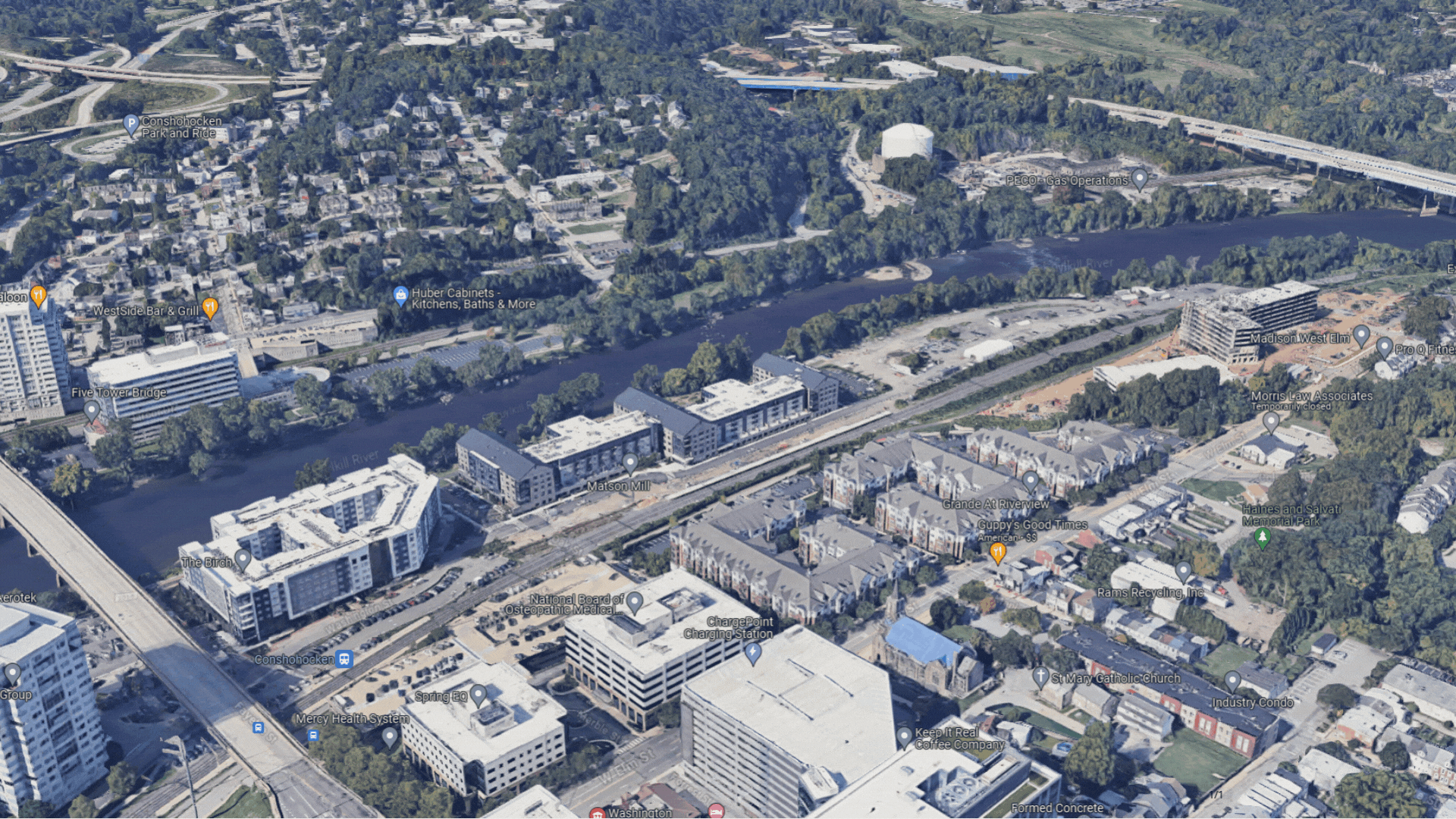This Transit Agency Almost Spent $50 Million on a Parking Garage. Now They’re Looking at Housing Instead.
Like countless transit agencies nationwide, the Southeastern Pennsylvania Transportation Authority (SEPTA) has been struggling to restore ridership in the aftermath of the COVID-19 pandemic. Back in spring 2023, in an attempt to reverse the downward trend, the agency entertained a $50 million investment in one of its suburban Regional Rail Stations. $10 million of that price tag would be covered by funds courtesy of the federal Congestion Mitigation and Air Quality program.
With SEPTA’s Regional Rail lines—which connect Philadelphia’s core to peripheral suburbs and cities as far as Trenton, New Jersey—“hurting the most,” according to the agency’s press statements, the investment was welcome. Riders were hungry for more reliable service. Operators wanted pay commensurate with the demands of the job. Perhaps the train cars would even be treated to much-needed modernization.
Instead, tens of millions of dollars were slated to fund a parking garage adjacent to Conshohocken Station, located approximately 15 miles outside of Philadelphia’s center. The station’s current 118 parking spots, not counting available street parking, would balloon to 528 and each additional spot was projected to cost $117,878.
For a cash-strapped agency that routinely laments its budget and is eyeing a 20% cut in service alongside a fare hike for 2024, the investment was baffling.
The morning of the vote, the Philadelphia Inquirer vilified the agency’s priorities, urging it to “stop wasting money on projects with little return on investment.” The editorial even cited the “bad math” of the recently disputed King of Prussia line, which would’ve appropriated $3 billion toward a project “that would have fewer riders than some of the agency’s bus routes.”
“And most importantly, does anyone seriously think (besides SEPTA and PennDOT) that someone will decide to get off the highway, park in Conshohocken, and take the train into the city?” Kevin Tierney asked in More Than The Curve, a Conshohocken-based outlet. “Or at least, enough people to make the construction of the $48 million garage and the other infrastructure (signage, etc.) a wise investment?”
The swarm of criticism ultimately compelled SEPTA’s board to scrap the idea. The parking garage was officially off the table by April 27, 2023.
Yet, even the most hopeful critics of the investment expected the parking garage to return. After all, it was five years in the making and the archetypal “zombie project.” To the surprise of many, six months later, the agency quietly released a Request for Information for the same 6.5-acre site. In it, SEPTA specifically inquired about transit-oriented development, or in this case, multi-family housing.
“We only hope now that this represents a new baseline for how to build on transit agency land, furthering SEPTA’s own transit supported community development vision,” Transit Forward Philadelphia wrote in a press release.
The SEPTA-owned site for which the agency submitted a Request for Information.
Pairing parking and transit dates back a century, but its limitations are as simple as geometry. The more land is ceded to parking, the less people can access the station by foot, necessitating the construction of even more parking. Furthermore, the more popular a park-and-ride service becomes, the more parking it will require. Once a lot fills up in the morning, later commuters are left stranded, regardless of the train’s capacity..
As a result, cries for more frequent service cannot be accommodated, not because of a shortage of equipment, operators, or riders, but because of the design of the system, itself.
As the nine-to-five commute marches toward irrelevance for many of Regional Rail’s riders, the system’s reimaging necessitates shedding its park-and-ride origins. While SEPTA’s Request for Information isn’t a conclusive win, the prospect of transit-oriented development is a step in the right direction. At the very least, it’s better than a $50 million parking garage.





Asia (pronounced “ah-sha”) Mieleszko serves as a Staff Writer for Strong Towns. A dilettante urbanist since adolescence, she's excited to convert a lifetime of ad-hoc volunteerism into a career. Her unconventional background includes directing a Ukrainian folk choir, pioneering synaesthetic performances, photographing festivals, designing websites, teaching, and ghostwriting. She can be found wherever Wi-Fi is reliable, typically along Amtrak's Northeast Corridor.